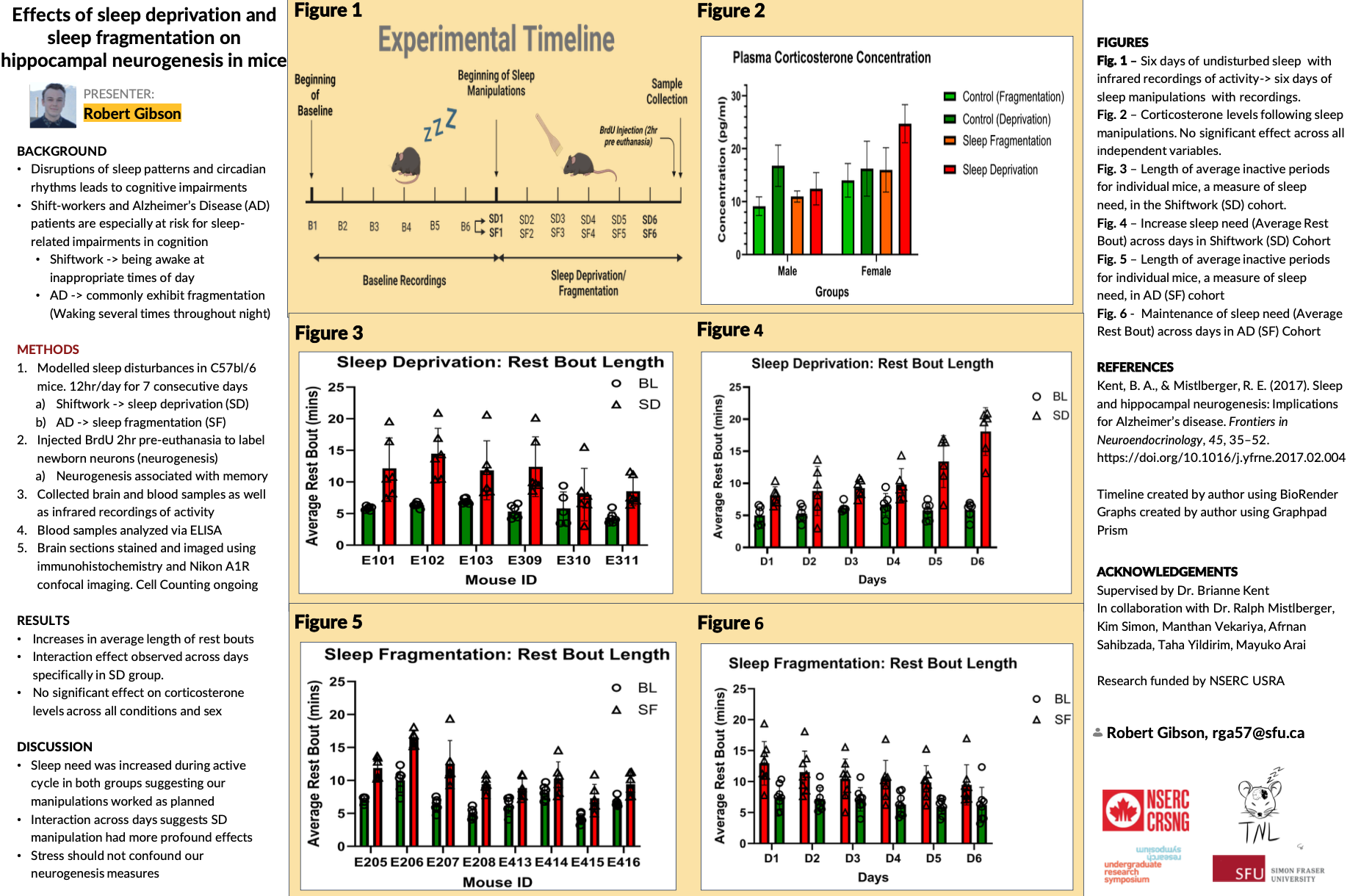Effects of sleep displacement and fragmentation on hippocampal neurogenesis in mice
Main Article Content
Abstract
Deprivation or continuous fragmentation of sleep suppresses the proliferation and maturation of new neurons in the hippocampus of adult rodents. A more common type of sleep disruption occurs in humans working nightshifts, when sleep is displaced from night to day. We evaluated hippocampal neurogenesis in mice (C57BL6/j, ~3 months age) subject to sleep deprivation procedures. A sleep displacement group (n=6, 3 females) was deprived of sleep for 12 hours each day during the typical rest phase (12h lights-on) and left undisturbed during the active phase (lights off) for 7 consecutive days. A sleep fragmentation group (n=8, 4 females) were disturbed every 2 minutes during their rest phase for 7 days. The control group (n=14, 7 females) remained undisturbed in their home cage. Activity during the active phase for all mice was recorded via infrared motion sensors. Mice were injected with 200mg/kg of BrdU 2-hours prior to brain and blood sample collection at the end of the light period on day 7. Preliminary analysis suggests the week-long procedures induced an accumulating sleep deficit, as indicated by a progressive increase in rest bout duration and total rest time at night. Plasma corticosterone quantified by ELISA assay did not differ across conditions or between sexes; effects of the procedures on neurogenesis were independent of this stress hormone. To assess neurogenesis, brain sections spanning the range of the dentate gyrus were stained using immunohistochemistry. All sections have been imaged using a Nikon A1R Laser Scanning Confocal system and cell counting is ongoing.
Article Details

This work is licensed under a Creative Commons Attribution-NonCommercial-NoDerivatives 4.0 International License.

